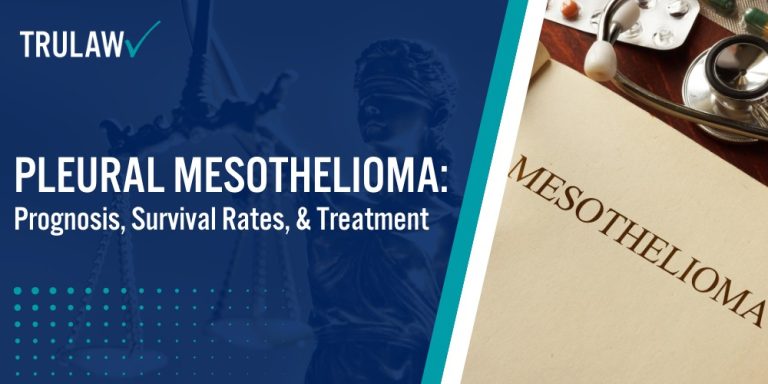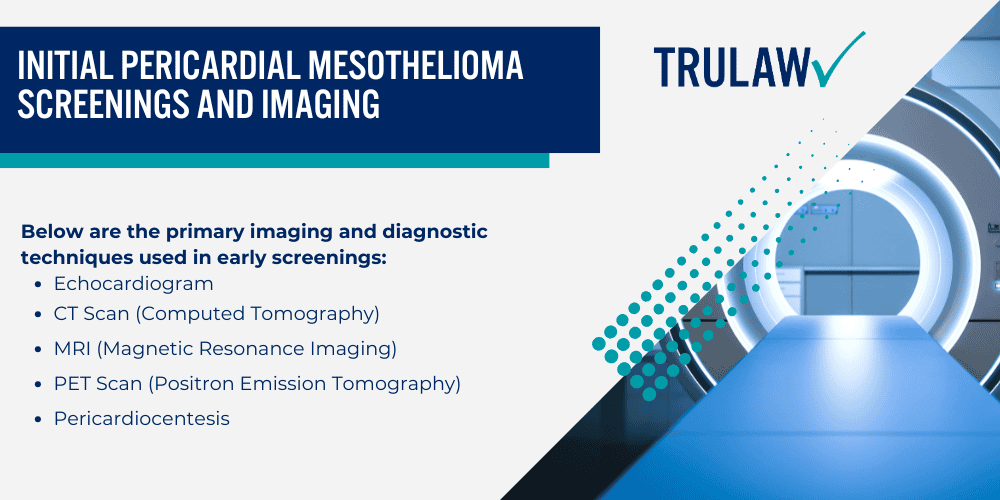Symptoms of pleural mesothelioma often develop gradually and may initially be misinterpreted as less severe conditions, such as respiratory infections or minor chest discomfort.
This asbestos-related cancer primarily affects the lining of the lungs, leading to symptoms that can remain subtle for months or even years.
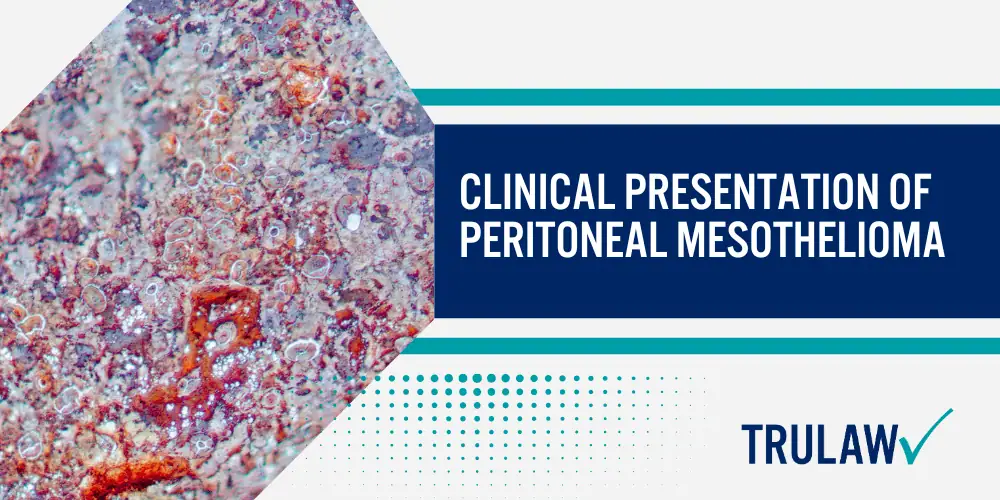
Early recognition of these symptoms is challenging, frequently resulting in delayed diagnosis.
Pleural Mesothelioma: Early Signs & Symptoms
The early symptoms of pleural mesothelioma include chest pain, shortness of breath, and fatigue, which can be subtle and easily overlooked.
These initial symptoms are often mistaken for minor ailments and delay diagnosis until the disease progresses.
Initially, chest discomfort may feel sporadic, and shortness of breath may seem negligible.
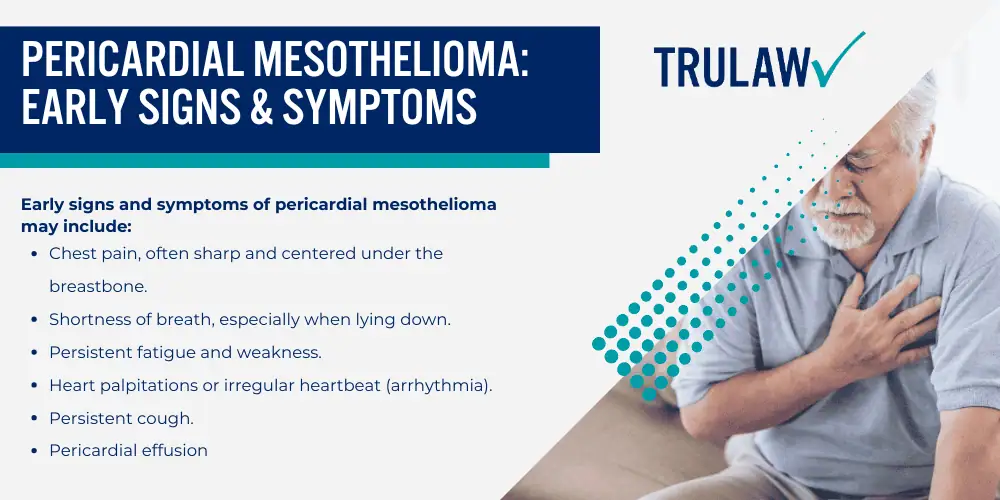
Early signs and symptoms of pleural mesothelioma may include:
- Chest pain, often localized and mild, may worsen with time.
- Shortness of breath may initially present as mild and infrequent.
- Persistent fatigue is often attributed to aging or stress.
- Sporadic episodes of fever or sweating.
- General malaise contributes to the feeling of tiredness.
- Fluid buildup around the lungs (pleural effusion) causes chest discomfort and breathing difficulties.
Individuals experiencing any combination of these symptoms, especially those with a history of asbestos exposure, should consider seeking a medical evaluation.
Detecting these symptoms early offers a better opportunity for diagnosis in early disease stages, which can be critical in managing progression.
Progression of Pleural Mesothelioma Symptoms
As pleural mesothelioma advances, symptoms can become more pronounced and significantly affect daily life.
Individuals may experience intense and persistent chest pain, increasingly severe shortness of breath, and a persistent cough that does not improve with standard respiratory treatments.
These intensified symptoms are often accompanied by considerable weight loss and difficulty performing routine activities.
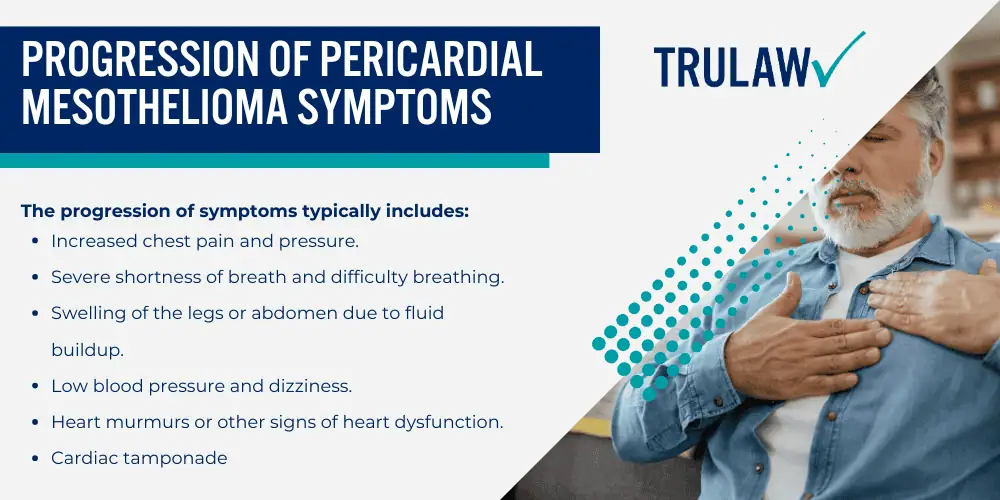
The progression of symptoms typically includes:
- Persistent, severe chest pain that intensifies over time.
- Significant, unexplained weight loss.
- Difficulty breathing, with shortness of breath becoming constant.
- Chronic, dry cough that does not respond to standard treatments.
- Muscle weakness, impacting mobility and stamina.
In advanced stages, symptoms can severely impact the quality of life and may limit treatment options.
Recognizing these signs promptly is essential, especially for those with asbestos exposure history, as early intervention may improve prognosis and symptom management.
